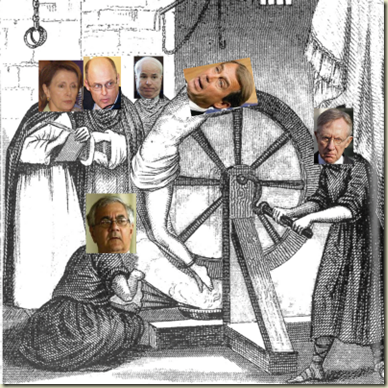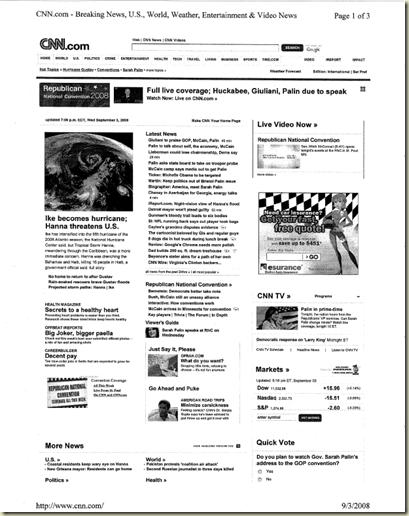I read an essay posted to Crosscut.com this morning that reminded me of something I wrote a few years ago but never thought to share. It's not in any way political, but maybe it's the perfect time to take a little break from the high anxiety that is gripping many of us.
----------------------------
People often keep mementos of their lost relatives; gifts they were given and other things for which emotional significance far outweighs size. My father left me an entire city.
I wasn’t at the 1960 World’s Fair. I never went to watch the Pilots - Seattle’s first major league baseball team - play at Sick’s Stadium. Nor was I alive when the Beatles came to play Seattle in 1964; I wasn’t lucky enough to pick up my morning paper and see a picture of the Fab Four fishing from the window of their room at Edgewater Hotel on the Seattle Waterfront. Nevertheless, the memories of these things are vivid because I lived them through my father’s voice. He cheerfully shared all of the stories from his own childhood growing up in what was then a small city (or big town, depending on your point of view) in the furthest corner of the contiguous United States.
Everything about Seattle is attached in some way to my father—Robert Stephan Myrick. Every hill I crest points me west toward the Olympics and the mountain that claimed his life when I was 12. While he was alive, my brother and I tagged along with him to every neighborhood, like school-agers on urban safari. Our little red Toyota pickup truck carried us on our cultural tour. Ballard. Fremont. West Seattle. Shilshole. Lake Union.
Our itinerary on any given weekend was more of a courtship ritual. His enthusiasm made sure we would fall in love with the city he loved.
My dad’s love for Seattle taught me what being home was all about. Now, the city is also my only real scrapbook of my time with him. I connect with the city so that I can still, in some way, connect with him.
* * * * * *
It’s seven thirty on any weekday morning and I’m driving south, toward University Village on 25th Avenue NE when my first postcard from the past turns up on my left.
It’s just a little yellow house—the same color paint as it was twenty-odd years ago—two doors up from the Kidd Valley on the corner of NE 55th. My brother and I used to sleep on the floor of the den in that house on alternating weekends. My father, after separating from my mother, had moved in with his best high-school friend Tom. Coincidentally, Tom was divorcing from my mother’s best high-school friend.
As I drive by, sometimes I capture a piece of a memory; most often it’s like chasing a leaf on a windy day. When I do manage to snare a vignette of days past, I commit it to memory. Later, in quieter moments, I will take it out and observe it like a boy with a captured firefly in a jar. Sometimes those quieter moments pass as a trance-like state that carries me all the way from the little yellow house to the Padelford parking garage without any conscious recollection of the road between.
Walking purposefully across the Quad, I feel his swagger coursing through me. As a UW student in the late 1960s, he would have walked those same bricks every day. Architecture major, philosophy major, then art major, he was a talented underachiever with the Vietnam draft in hot pursuit. He claimed to be a Marxist-Leninist, probably more to identify himself as being different from his staunchly anti-Communist father than out of any true ideological devotion.
My father and I would have debated mercilessly and emotionally, sometimes simply for the thrill of the debate. Competing for each other’s respect, we might have spent more time alienating each other than getting along. The only consolation in spending our time in that kind of difficult relationship - had it come to pass - would have been that it was time of any kind at all.
* * * * * *
Now it’s a Saturday afternoon and I am racing to get from Bothell to my home in Lake Forest Park. My route will take me directly through the area we lived at the time of my parent’s divorce; an area I know like the back of my hand. I am driving on a road crossing a very tall hill, looking west at the next hill over, and the road ahead of me disappears. When we first moved here in 1976, people called this Nike Hill because of the Nike missile silo. The massive concrete lid to the missile chamber could be seen from the road; an eerie reminder that the Cold War was real and nuclear weapons were in the neighborhood.
Every time I reach the point where the road heads down the side of the hill, I see an image of my dad’s red Toyota truck plunging headlong down the road. The hill today - still long and steep - isn’t as steep as it once was due to re-grading in 1997. When we were young it was the kind of slope that elementary school legends were made of. It was calculated by my friends in the fourth grade that if, during the winter, a boy hopped on a sled at the top and managed to stay on all the way to the bottom, they would reach a top speed of 753 miles per hour. Exaggeration is the special gift of the young because they haven’t yet learned to put limits on things.
My father’s purpose in life was to keep us on our toes. If my mother was not present, as we approached the critical point at which we would begin to drive down the hill, he would dramatically slow the little red truck to 10 or 15 miles per hour. Once the wheels passed the threshold (the point where the top of the hill became the hill proper) he would make the same announcement.
“No brakes,” he would say calmly. It was a declaration, not an exclamation. I was very aware that the brakes worked just fine, it was just that he was not going to employ them.
Slipping the gearshift into neutral, and removing his hands from the steering wheel, we accelerated. By midpoint the speedometer read 60 miles per hour. When I looked at my brother sitting next to me on the bench seat he was always smiling and when I became aware of myself I realized I was laughing. My dad was smiling, too, and it was one of the rare times I can remember seeing him really happy. When we reached the bottom of the hill, where the road flattened out, gravity pushed us down in the seat giving a sensation as one would imagine a Nordic ski jumper feels upon landing.
Then we would get the second, and more important, announcement.
“Let’s not tell your mother about this,” he said, innocently drafting us into the battle that would wage between our parents. Inevitably, my brother or I would want to share the excitement with my mother. She would feign amusement, but the seed would always be planted for an argument between she and my father at some point later in the evening. After seeing this happen on more than a few occasions, we began to withhold a lot of the fun we were having from my mom.
* * * * * *
March seems to be my favorite month to randomly drive to the Arboretum. The sky is usually battleship grey. The trees are still clinging onto their leaves which turn over in the wind to expose their lighter underside. I can sit and watch a tree change in the wind like that for hours, all of its leaves changing from dark green to light green in unison. In those moments nature seems to be speaking with a clear voice - directly and dramatically.
I always find myself in front of one tree in particular. It’s a thirty-foot tall maple with a trunk that splits at the base. Twenty-five years ago, Linda - my father’s girlfriend at the time of his death - was standing under the canopy of leaves making adjustments to her Hasselblad large-format camera atop its tripod. She was a professional photographer, and my father had relented to her requests to take a portrait of he and his sons. His only stipulations were that it would be a) black and white and b) not in three-quarter profile. He would not tolerate anything being mundane, especially a likeness of something as individual and important as his family.
As we stood together, in the shade of the tree, Linda would periodically probe various spots on our skin and clothing with her light meter. Then she would walk back to the camera and make an adjustment. It was not in our nature to be patient, but I remember feeling patient on that day. It seemed important; more than just a snapshot.
Less than two months from that day he would be gone. The picture still sits on my bureau; I look at it every morning before leaving the house. Seeing the three of us huddled together and smiling, the picture just manages to counteract the nightmarish images that accompany thoughts of his death.
But actually standing there, under the maple tree, the reality of the moment struggles to reassemble itself and I almost experience it again. It’s as though some impression of us - our feelings of belonging in that moment - was made there. Like a powerful explosion of emotion that had occurred, and something of us had been left like radiation in the surrounding grass and trees. I don’t know what the half-life of a memory is, so I keep coming back every year to experience it while I still can.



